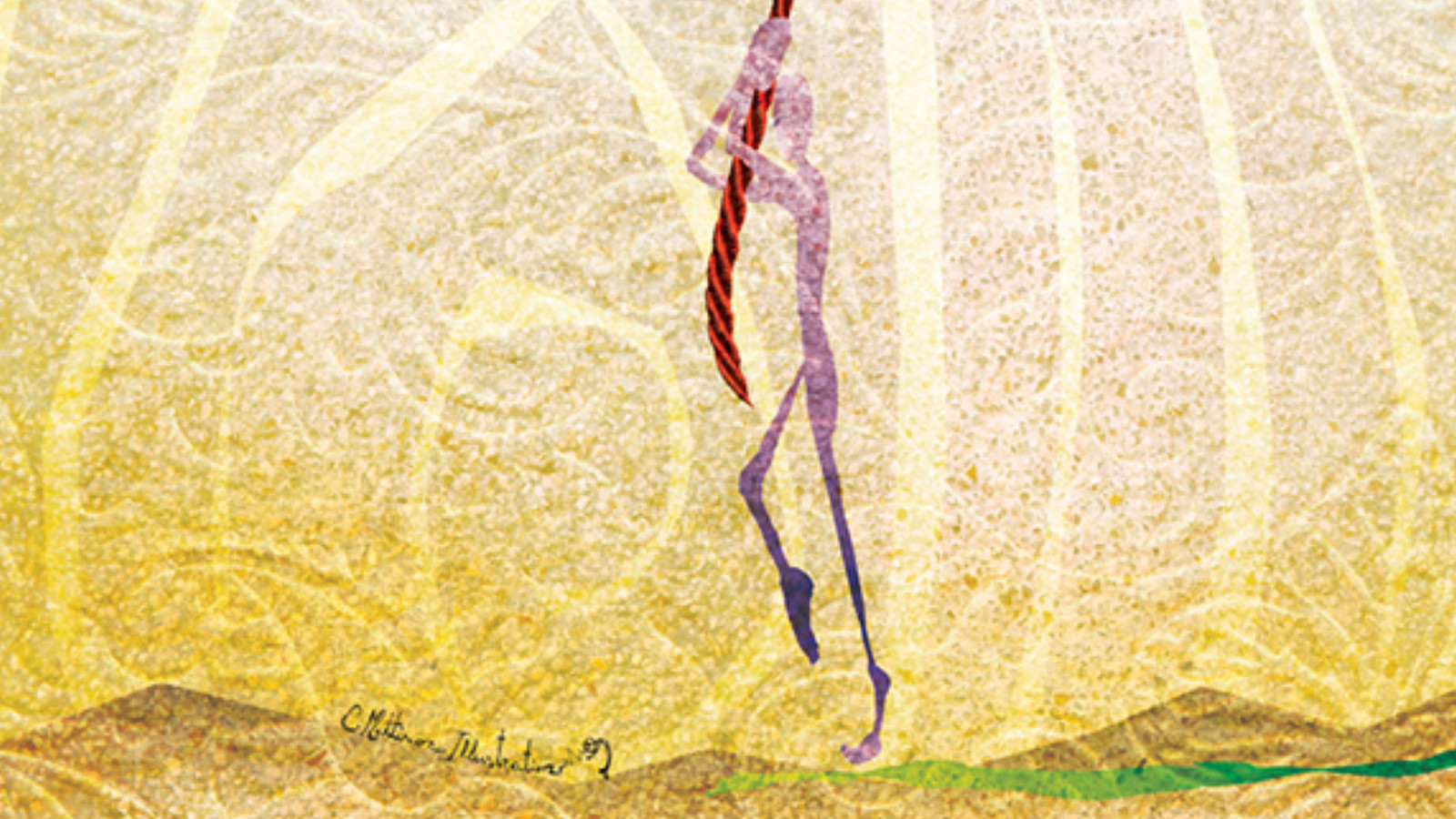Commentary on Parashat Sh'lach, Numbers 13:1-15:41
Parashat Sh’lach is a big one. The spies report back from their mission to the land of Israel, God gets angry, Moses intervenes, there’s an attempt at forgiveness along with some begging and pleading, one man gets stoned to death, Amalek shows up and various types of sacrifices are laid out for us. And if that wasn’t enough, we receive the mitzvah of tzitzit – the fringes worn on four-cornered garments, a reminder that God is with us as we walk our journey.
Like most Torah portions, there’s some narrative, some law, and some small gems in the unlikeliest of places. Buried in the narrative so deeply that we almost miss it is a verse that states: You and the stranger shall be alike before the Lord. The same ritual and the same rule shall apply to you and to the stranger who resides among you.
Why here? And why now?
Since the redemption from slavery in Egypt, the ancient Israelites have been wandering, from mountain tops to valleys, encampment after encampment. Things seem fine at first, but then it all begins to break down. The desert is hot, the food is just ok. The Jews complain, they rebel, they demand meat. A promised land was promised, but it’s taking a long time to get there.
With your help, My Jewish Learning can provide endless opportunities for learning, connection and discovery.
More than once, the people shout: Let’s head back to Egypt. It was better there.
Reading of the hardships of the wilderness narrative and imagining the lingering scars of slavery, it’s hard to blame our ancestors for questioning God’s intentions. Faith, we come to understand from these chapters, is fleeting. It’s hard to hold on to even in the best of circumstances.
Facing the uncertainties of a new land, Moses sends out spies to research and report. Their mission lasted more than a month. They walked from east to west, explored cities and valleys and coastal regions. The Torah doesn’t supply many details about the journey itself. What must have been a long and complicated excursion is recounted in just four verses.
The ancient sages shared a desire for more detail, and they supply us with some provocative images. The inhabitants of the land were so tall, they tell us, that they wore the sun like necklaces. The best and juiciest lambs and cows come from Hebron. We are also told, in the Midrash Tanchuma, that God shortened the spies’ path so they could see the entirety of the land in just 40 days.
For a bunch of frightened tribal leaders who were terrified by what they encountered, God did them a favor, but it was short lived. The spies’ inability to see Israel for all its potential eventually led to their demise. Today we name our children Joshua and Caleb, after the only two spies who could see the possibilities of the land. A shorter path, one where our eyes are closed and fear is all around, doesn’t lead to redemption or holiness or sacred community. Goodness is experienced by those willing to keep their eyes open in all surroundings, by those fearless enough to remain on the path.
The wilderness generation is so torn apart, our rabbis tell us, they don’t even have a share in the world to come. Afraid of having to enter the land, they sat down and wept. For this they’re crying, God asks. They are crying for nothing, God says, but seeing as how they know how to mourn, I will set aside this day as Tisha B’av, for all the real weeping that will occur in future generations. Our rabbis recognize the power of this communal mourning and fear, even if it seems misplaced. Before we even enter the land, our rabbis tell us we’ve got the skills to weep for when we’re thrown out.
Which brings us back to the verse about the stranger. You and the stranger shall be alike before the Lord, the Torah says. The same ritual and the same rule shall apply to you and the stranger who resides among you.
Why here? And why now?
Perhaps this mandate – to create equality — comes in the midst of the Torah portion where we learn that nobody who was in Egypt will travel into the land because it’s a metaphor for something larger. Those ten spies – the ones whose names we just barely recall — would never be able to create a just land. They didn’t have the courage, or the vision, to craft a system that is welcoming, accepting and pluralistic, that sees everybody.
This is a bridge Torah portion, in a sense. We come to understand that an entirely new population will move forward, and with that comes our law to remember the stranger, to create just systems. That is only possible with distance from Egypt – and the blessing of collective memory.



